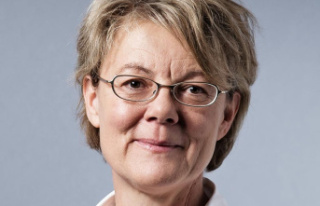Opposition leader Friedrich Merz (CDU) is certain: the lifespan of the three remaining German nuclear power plants will be extended. "I also predict that at the end of the year we will see that the lifespan of the nuclear power plants will be extended," said Merz on Sunday in the previously published ZDF summer interview, which will be broadcast in the evening.
The federal government rejects proposals from the Union as a matter of principle, says the CDU leader. Shortly afterwards, however, she implemented exactly this several times, he emphasized. So far, the government had strictly rejected a term extension. Recently, however, it decided to re-test the power supply under extreme conditions and re-evaluate the runtime extension.
Merz rejected calls by Saxony's Prime Minister Michael Kretschmer to continue supplying energy from Russia. "With Michael Kretschmer, we have a Prime Minister in our ranks who sees things differently from the Saxon perspective, but that's not the opinion of the Union either," said Merz. But there is no east-west split in the party's positioning towards Russia, he said.
Regarding Kretschmer's call for the Ukraine conflict to be frozen, Merz said that there were "of course discussions about this topic" in the party. However, the party has “a very clear opinion” on this and there are also board decisions on this. Merz echoed the Estonian Prime Minister Kaja Kallas with the words: "Energy may be expensive, but freedom is priceless."
On Tuesday, Kretschmer referred to necessary deliveries of raw materials from Russia and demanded that a joint attempt be made to "influence" Putin. Germany should therefore advocate that this war be "frozen". Apparently, his positioning has no consequences for Kretschmer. “In our party there is also room for this position. We discuss it and endure the controversy,” said CDU General Secretary Mario Czaja to the editorial network Germany.
When it came to women's quotas, Merz reiterated his skeptical attitude. Even if he has now made a compromise proposal for a quota, he still only considers it "the second-best solution," said the party leader. He has never denied that the low proportion of women in the CDU is a problem. "But it's not the country's biggest problem."
"I want us to have enough women in the party, more than today," said Merz in the interview that will be broadcast in the evening. “I want young women to work for the party and in the party. But that is about factual issues and not so much about personnel issues.”
The proportion of women in the CDU has hardly changed since the 1990s. In the Bundestag, the Union currently has a proportion of women of 23.5 percent, among party members it is 26.6 percent. The age structure is also considered a problem: the average age of the members is 60.8 years.
The party conference on September 9th and 10th in Hanover will now decide on the women's quota, which has been discussed for years. In June, Merz proposed gradually introducing a 50 percent quota for women for party executives from district level by 2025. But it should be limited to five years.
"Kick-off Politics" is WELT's daily news podcast. The most important topic analyzed by WELT editors and the dates of the day. Subscribe to the podcast on Spotify, Apple Podcasts, Amazon Music or directly via RSS feed.












